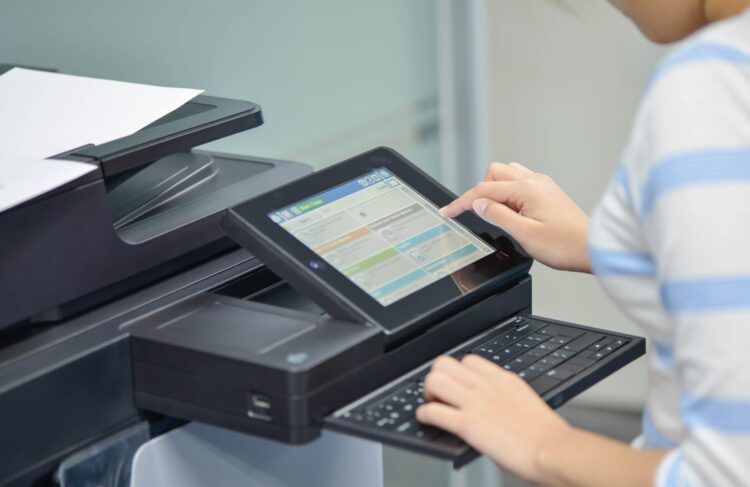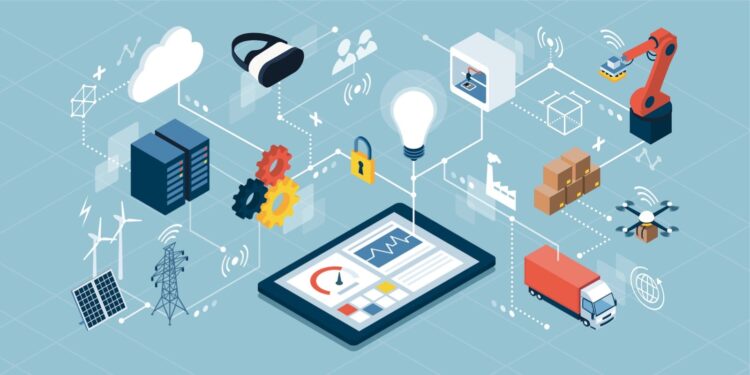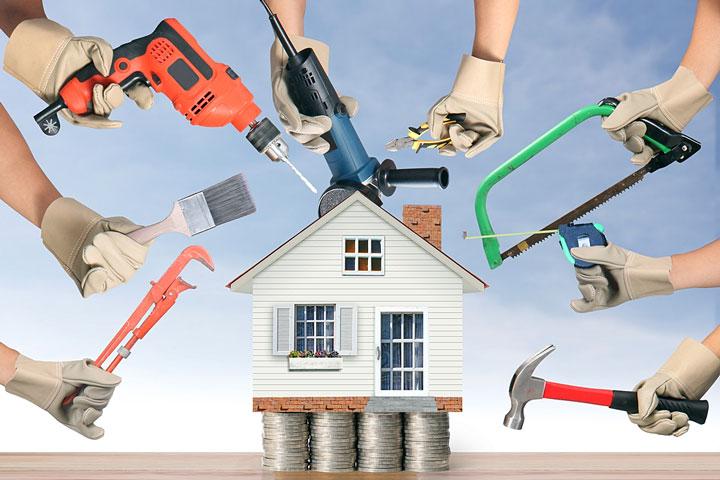Saving on energy costs is becoming more important every year as fuel and delivery expenses rise. If you’re a commercial investor or thinking about becoming one, you can reduce your energy costs by following some of the advice below.
Also, for investors interested in reducing costs with effective property management, please click this link to learn more.
Page Contents
Build Smart
If you’re building a commercial project, it’s wise to invest in systems that feature automated controls and systems. These systems feature actuators and sensors that work together to create an application of intelligent data collection.
Some experts estimate that ‘smart buildings’ are growing by 22% per year and reached $20 billion in 2024.
Smart building systems save money because they offer visibility into the building’s operations in real-time. The data that’s collected can be used for tracking, analyzing, and communicating.
Check That Equipment Works Properly

img source: schaffhouser.com
Commercial investors should regularly inspect their property’s controls and equipment to ensure they operate at peak efficiency.
Also, check your Energy Management Systems systems to ensure you have maximum performance. Changing a software programming glitch in EMS to save thousands of dollars per year!
Note that equipment is the initial place that energy is made into work in your building. Just a loose fan belt can cost you a lot of money over time.
Remove and Replace Incandescent Lights
These older light bulbs and lights are less expensive upfront, but ongoing operational costs are high. Compact fluorescent lights, or CFLs, use much less energy and last longer. Also, they generate less heat and reduce your heat load.
Also, have your property managers check the lighting in your restrooms, closets, and lobbies. Note that the 2005 Energy Bill allows you to tax deduct some lighting upgrades and retrofits.
Tell Tenants To Shut Off Equipment

img source: netdna-ssl.com
It’s essential during off-hours to shut down unused equipment, including kitchen appliances, copiers, and task lights. Tell security and cleaning people to shut off kitchen gadgets and unused office lights.
Use Effective Monitoring And Control
Constructing a smart building is fantastic, but it won’t help if you don’t ensure that employees and team members don’t have easy access to these systems. Your facility operators, managers, and engineers need to see real-time data on their mobile devices to ensure that continuous monitoring works.
You can use centralized monitoring where the view of your buildings is checked, and an engineer goes out when there is an issue. Or, allow notifications and alerts on your employee’s mobile devices that give early warnings when something uses more energy than necessary.
Internet Of Things Systems

img source: itchronicles.com
IoT is an innovation that is used to boost energy efficiency. The Internet of Things uses the World Wide Web to connect data from many devices that are integrated into systems.
IoT may be used to gather information, including light, air pressure, temperature, and flow of water. When IoT is integrated with your building’s management systems, it allows for real-time monitoring and control.
Improve Insulation
Laying down more insulation around your HVAC, cooling and heating, pipes, and power outlets boosts energy efficiency and cuts energy costs.
Insulation offers heat flow resistance and drops your cooling and heating costs, which makes tenants more comfortable.
You also can lower heat loss with external or internal wall insulation.
Use Real-time Data

img source: sfdcstatic.com
Buildings equipment with smart solutions can utilize real-time data to adjust and control systems automatically.
For instance, by watching worker badge access data for your building, the HVAC system can be controlled automatically based on rising or dropping occupancy during the day.
Review Cleaning Options
The below cleaning choices can save you money on various commercial spaces:
- Day cleaning: Consider having your cleaning personnel clean when the sun shines when the lights are on already.
- Team effort: Your janitors can work with your security team to go through the property and shut off items that tenants left on.
- Occupancy sensors: When you install motion sensors, they can turn lights on automatically when cleaning personnel are doing their work and shut them off when they’re done.
- Coordinated cleaning: Your janitors can work the building by floor, so lighting is shut off as they move to different areas.
Use An Energy Awareness Program

img source: saurenergy.com
Some successful commercial property owners have come up with an energy awareness program to encourage tenants to save electricity. You can make news releases, promotional flyers, and posters to tell all tenants that you’re committed to reducing energy use.
Also, use a newsletter to tell your tenants about your goals to save on electricity costs. Then, tell them how they can help and benefit from these efforts.
Purchase Power Management Software
It’s estimated that up to $1 billion per year is needlessly wasted on power for PC monitors that are left on all night. You can avoid this cost by using power management software for your building’s CPUs, hard drives, and computer monitors.
Complete Building Upgrades

img source: bpihomeowner.org
You can boost your energy and financial savings by using a systematic approach to upgrading your building. Doing this effectively means you’ll manage energy variances among building systems.
Finance Projects That Conserve Energy
If you don’t have the cash to pay upfront for your desired upgrades, there are many options to finance your projects intended to save money.
Use Energy-Saving Competitions
You can motivate your building team to uncover new ways to save on energy. Be sure to reach out to your tenants to enhance your efforts. Doing these things will improve your bottom line and help the earth.
Find Experts To Advise You

img source: wikimedia.org
The Environmental Protection Agency (EPA) has service and product partners that work with the ENERGY STAR program to provide building owners with the help they need to reduce energy costs when it’s vital.
Many providers offer financing to assist you with executing energy management projects that reduce costs and carbon emissions.
There are many aspects to saving money and energy with commercial buildings, but you can make a huge difference in your bottom line with enough planning and effort.





